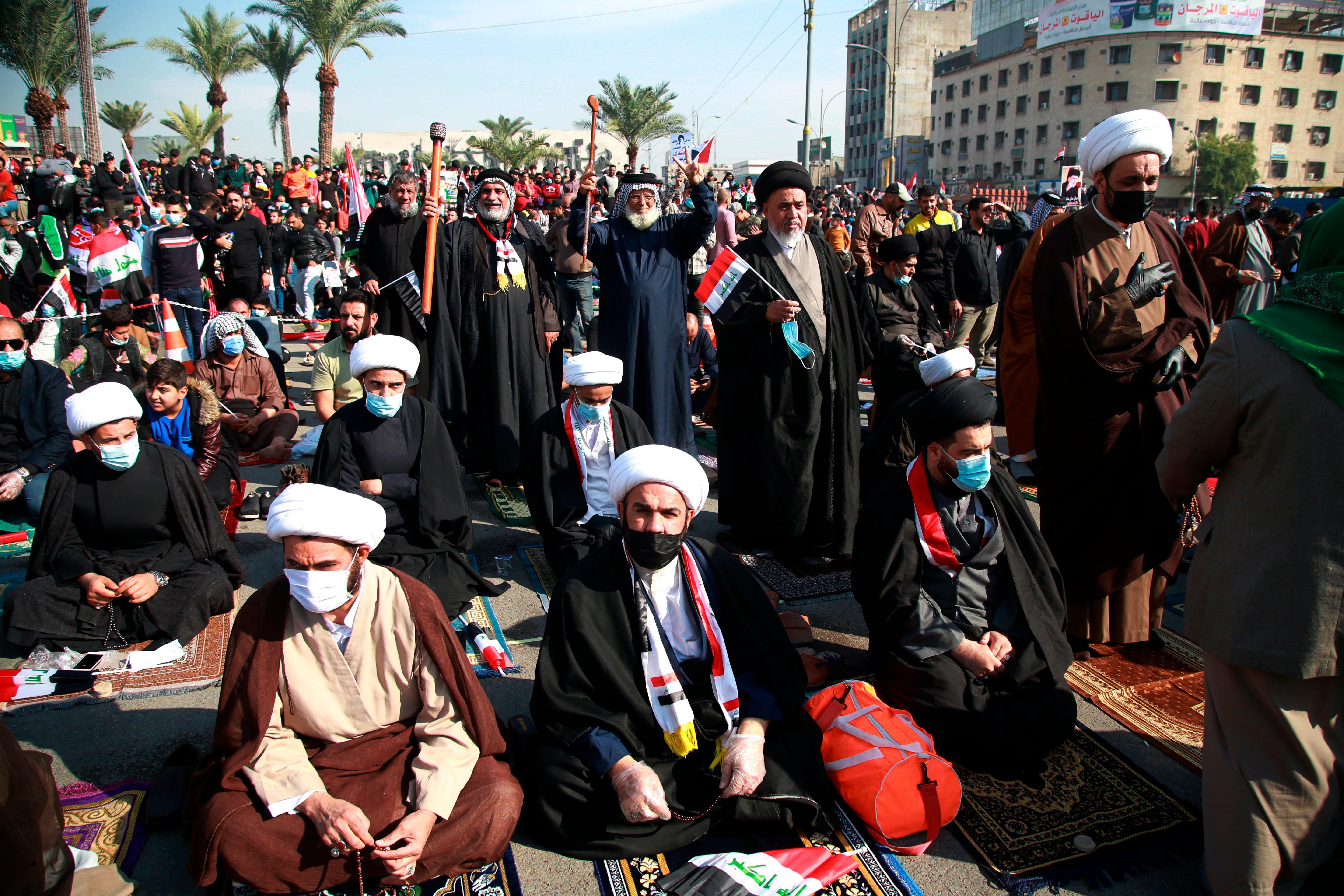Demonstrators in Iraq take to street unmasked amid pandemic
Thousands of followers of a firebrand Iraqi cleric — most of them not wearing protective masks — have taken to the streets of the capital in a show of support for their leader ahead of elections slated for next year, stirring fears of a virus outbreak

Your support helps us to tell the story
From reproductive rights to climate change to Big Tech, The Independent is on the ground when the story is developing. Whether it's investigating the financials of Elon Musk's pro-Trump PAC or producing our latest documentary, 'The A Word', which shines a light on the American women fighting for reproductive rights, we know how important it is to parse out the facts from the messaging.
At such a critical moment in US history, we need reporters on the ground. Your donation allows us to keep sending journalists to speak to both sides of the story.
The Independent is trusted by Americans across the entire political spectrum. And unlike many other quality news outlets, we choose not to lock Americans out of our reporting and analysis with paywalls. We believe quality journalism should be available to everyone, paid for by those who can afford it.
Your support makes all the difference.Thousands of Iraqis — most of them not wearing protective masks — took to the streets in Baghdad on Friday in a show of support for a radical cleric ahead of elections next year, stirring fears of a spike in coronavirus cases.
Supporters congregated in the capital's Tahrir Square, once the epicenter of mass anti-government protests, to show their support for Moqtada al-Sadr, who leads a powerful political bloc, ahead of federal elections slated for next June.
Most of al-Sadr's followers stood unmasked in the square, chanting: “Yes, yes for our leader,” in support of the firebrand cleric as Iraq remains a high-risk country for coronavirus infection. The crowd then stood side-by-side for Friday prayers at noon.
More than 12,000 people have died of the virus in Iraq amid 544,000 confirmed cases, according to Health Ministry figures. Daily infection rates average 2,400 cases per day, but health workers say the number may be higher as many Iraqis with symptoms choose to stay home and avoid hospitals to get tested.
Iraq has the second highest outbreak and number of deaths in the region after Iran.
Al-Sadr leads the Sairoon political bloc, which holds the majority in parliament. He has taken steps in preparation for elections scheduled for June next year. His followers called for a demonstration in support of the leader's call for mass participation in the vote.
“The Iraqi people and al-Sadr's followers will have one saying, and that is: Yes yes for Iraq," said Ibrahim al-Jabiri, director of al-Sadr's office north of Baghdad.
Observers consider the protest as a show of mettle by al-Sadr meant to send a message to other political blocs that on Iraq's streets, the cleric still has clout.
Prime Minister Mustafa al-Kadhimi called for elections to take place next June, a year earlier than expected. That was a key demand of anti-government protesters who paralyzed Iraq's streets when tens of thousands demonstrated last October.
The elections will take place under a new law approved by lawmakers this year that theoretically will enable more independent candidates to run. Iraq's electoral commission has said it is prepared to hold early elections on time if the government allocates a budget for the vote.